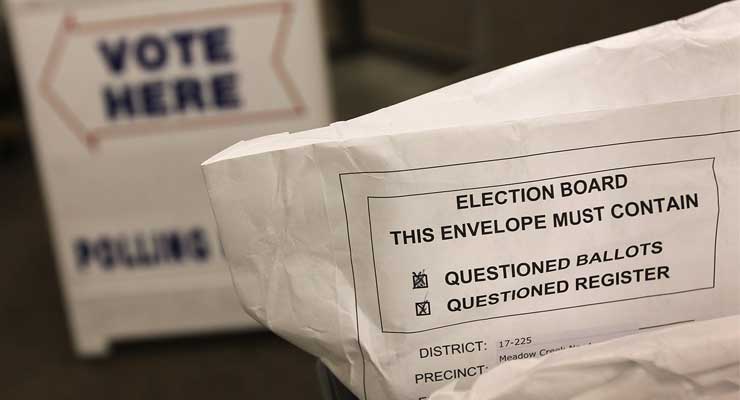
Major restrictions for third parties seeking South Dakota ballot access harm political competition
Democracy, elections and voting at Democracy Chronicles
A new post, “South Dakota Legislature Passes Bill Making Ballot Access Worse”, by Richard Winger of Ballot Access News has the latest information on the new bill:
On March 13, the South Dakota legislature passed SB 69, which makes ballot access worse for both newly-qualifying parties and independent candidates. The bill was amended on the House floor to soften some of the harm, and the Senate accepted the House amendments.
The bill moves the petition deadline for newly-qualifying parties from the last Tuesday in March to the first Tuesday in March. The original bill had moved that deadline into February, so the final version still makes the deadline more restrictive, but not as bad as the earlier version. For 2016, the deadline would move from March 29 to March 1.
The bill still says that no one can sign an independent candidate petition if the potential signer is a registered member of a qualified party. Current law lets any registered voter sign an independent candidate’s petition.
The bill no longer makes the petition for a member of a small ballot-qualified party to get on the primary ballot any worse than it already is. Current law says a member of a new party needs 250 signatures of party members to get on the primary ballot for statewide office, which is a large problem if the party only has 500 registered members, or even if it has 2,000 members, because they are scattered all over the state. The bill says a candidate of a new party now has a choice of obtaining 250 signatures of party members, or he or she can also obtain signatures of independent voters, but if that alternative is used, the requirement rises to 1% of the number of independent voters, which would be over 1,000 signatures of independent voters and/or party members.
Another provision of the bill raises the number of signatures for members of large parties to get on the primary ballot. Existing law requires primary petitions from 1% of a party’s previous gubernatorial general election vote (if the party is not a new party), but the bill changes that to 1% of the number of registrants in that party. That change has a worse impact on Democrats than on Republicans. Many politically active people in South Dakota are working to persuade the Governor to veto the bill.
According to another summary provided by Bob Mercer of the independent local newspaper Black Hills Pioneer there are several major new changes for third parties and independent politicians:
- Candidates for state and county offices would be allowed to begin circulating nominating petitions for signatures on Dec. 1 before the election year. The current start is Jan. 1 of the election year;
- Candidates would need to submit those petitions no later than 5 p.m. on the first Tuesday of March. The current deadline is the fourth Tuesday of March;
- Candidates won’t get leeway to submit petitions by registered mail sent before the deadline but then arrive after the deadline. That currently is allowed;
- The signature requirement for legislative candidates and county offices will be based on registered voters in the candidate’s political party at the last general election. The current basis is votes cast for the party’s governor candidate in the last election;
- Candidates for the first time would face requirements to withdraw from the ballot, such as moving to a new district, or a doctor’s signed statement that illness of the candidate or an immediate family member prevents the candidate from performing the duties; and
- Increasing the petition signature requirements for independent candidates at various levels.
Leave a Reply